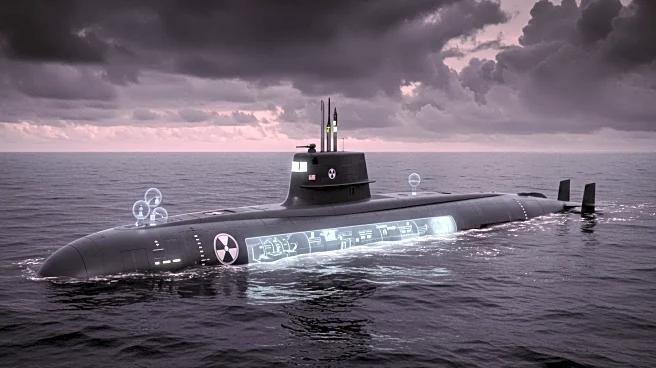What's Happening?
North Korean leader Kim Jong-un has called for the rapid expansion of nuclear capabilities within the country's navy. During a visit to the new destroyer Choe Hyon, Kim emphasized the need to transform North Korea's naval fleet into a high-tech, nuclear-armed force. He cited ongoing military drills by the US and South Korea as threats to North Korea's security, advocating for a nuclear-centric defense strategy. The new destroyers, heavily armed and frigate-sized, are believed to be capable of launching short-range ballistic missiles.
Why It's Important?
Kim Jong-un's call for nuclearization of the navy reflects North Korea's strategic focus on enhancing its military capabilities amid perceived threats from US and South Korean forces. The development of nuclear-armed naval vessels could significantly alter regional security dynamics, increasing tensions and prompting responses from neighboring countries. North Korea's emphasis on nuclear capabilities underscores its commitment to maintaining a strong deterrent against external threats, complicating diplomatic efforts to address its nuclear ambitions.
What's Next?
The expansion of North Korea's nuclear capabilities may lead to increased international scrutiny and pressure, particularly from the US and its allies. Diplomatic efforts to address North Korea's nuclear program are likely to continue, with potential implications for regional security and stability. The development of nuclear-armed naval vessels may also prompt military responses from neighboring countries, further escalating tensions.
Beyond the Headlines
The focus on nuclearization within North Korea's navy highlights the broader challenge of addressing nuclear proliferation and maintaining regional security. The development of nuclear-armed vessels raises ethical and strategic questions about the role of nuclear weapons in modern military strategy and the potential consequences for global peace.









